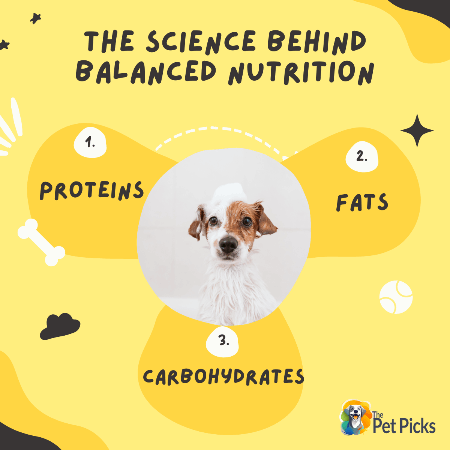The Mysterious World of Mixed Breed Nutrition
Every dog is unique, and when it comes to mixed breeds, their nutritional needs can be as diverse as their genetic makeup. As a pet parent, understanding these needs is crucial to ensure your furry friend leads a healthy and happy life. In this guide, we'll unravel the intricacies of mixed breed dog nutrition and highlight how some of the leading pet food brands cater to these specific requirements.
The Genetic Puzzle of Mixed Breeds
Mixed breed dogs, often referred to as mutts, are a combination of two or more pure breeds. This genetic diversity can lead to varying nutritional needs, influenced by factors such as size, activity level, and inherited health concerns. For instance, a mixed breed dog with a lineage of a Labrador and a Beagle might have energy requirements that differ from a Poodle-Terrier mix.
Why Genetics Matter
The genetic makeup of your mixed breed dog plays a pivotal role in determining its nutritional needs. Some breeds are predisposed to certain health conditions that can be managed or even prevented with the right diet. For instance, larger breeds might be prone to joint issues, while smaller breeds could be at risk for dental problems. Understanding these genetic predispositions can help you choose the right food for your pet.
Tailored Nutrition for Mixed Breeds
Several pet food brands recognize the unique needs of mixed breed dogs and offer tailored solutions. Brands like Spot & Tango, NomNom, and The Farmer's Dog emphasize fresh, high-quality ingredients that cater to the specific requirements of individual dogs, ensuring they receive the right balance of nutrients.
The Role of Quality Ingredients
When it comes to nutrition, the quality of ingredients is paramount. Mixed breed dogs benefit from a diet rich in high-quality proteins, healthy fats, and essential vitamins and minerals. But what does “quality” really mean in the context of dog food?
Beyond the Label: Understanding Quality
Not all ingredients are created equal. For instance, while two brands might list “chicken” as their primary ingredient, the source and processing of that chicken can vary widely. Brands like Open Farm and We Feed Raw prioritize transparency, allowing pet parents to trace the origins of every ingredient in their dog's food.
The Power of Fresh Food
Fresh food diets, like those offered by MyOllie and Sundays for Dogs, provide dogs with minimally processed nutrients, ensuring they get the most out of every bite. These diets are often free from fillers and artificial additives, aligning with the values of pet parents who prioritize humane treatment of animals and sustainability.
For a deeper dive into the benefits of fresh dog food, check out our comprehensive guide on The Remarkable Benefits of Fresh Dog Food.
The Science Behind Balanced Nutrition
Understanding the science of dog nutrition is crucial, especially for mixed breeds. Their diverse genetic makeup means they might need a balance of nutrients that's different from pure breeds.

Macronutrients: The Building Blocks
Every dog, regardless of its breed, requires a balance of macronutrients – proteins, fats, and carbohydrates. Proteins are essential for muscle development, fats provide energy and support brain health, and carbohydrates offer a quick energy source.
- Proteins: Brands like Spot & Tango and NomNom emphasize high-quality protein sources like beef, chicken, and fish. These proteins provide the essential amino acids that dogs need for muscle growth and repair.
- Fats: Essential fatty acids, like Omega-3 and Omega-6, play a vital role in skin and coat health. Brands such as Open Farm incorporate these healthy fats into their recipes, ensuring a shiny coat and healthy skin.
- Carbohydrates: While dogs don't necessarily need carbohydrates in their diet, they can be a good source of energy. Brands like The Farmer's Dog use wholesome sources of carbs like sweet potatoes and peas, which also provide essential vitamins and minerals.
Micronutrients: The Unsung Heroes
Beyond the macronutrients, dogs also need a variety of vitamins and minerals. These micronutrients support everything from bone health to immune function. Brands like We Feed Raw and Sundays for Dogs ensure their recipes are fortified with these essential micronutrients.
Special Considerations For Mixed Breeds
Mixed breed dogs often fall between the standard size categories of “small,” “medium,” and “large.” This can make it challenging to determine the right portion sizes and nutritional needs.

Size and Activity Level
A mixed breed dog that's more active will require more calories than a sedentary one. Similarly, larger mixed breeds might need more joint support, while smaller ones might benefit from nutrients that support dental health.
Age and Life Stage
Puppies have different nutritional needs than adult dogs or seniors. Brands like MyOllie offer tailored recipes based on life stages, ensuring that your mixed breed gets the right nutrients at every age.
Sustainable and Ethical Choices for the Conscious Pet Parent
In today's world, sustainability and ethical sourcing aren't just buzzwords – they're a way of life for many. Dog lovers who value these principles will be pleased to know that brands like Open Farm prioritize these values, offering ethically sourced ingredients and eco-friendly packaging.
For more insights into the role of sustainability in dog nutrition, explore our detailed article on The Essential Guide to Vitamins and Minerals in Your Dog's Diet.
Tailoring Nutrition: Beyond the One-Size-Fits-All Approach
Every mixed breed dog is unique, and their diet should reflect that. Brands like NomNom and Spot & Tango offer personalized meal plans based on your dog's specific needs, ensuring they get the best nutrition tailored to them.
Navigating the World of Mixed Breed Nutrition: A Recap
Embarking on the journey to understand the nutritional needs of mixed breed dogs can be both exciting and overwhelming. With their diverse genetic makeup, these beloved pets often require a more tailored approach to nutrition. By prioritizing high-quality ingredients, understanding the balance of macronutrients and micronutrients, and considering the unique needs of your mixed breed, you can ensure they lead a healthy, happy life. Remember, every dog is unique, and what works for one might not work for another. Always be open to adjusting and fine-tuning your dog's diet based on their specific needs and any changes in their health or lifestyle.
FAQs
What are the primary nutritional needs of mixed breed dogs?
Mixed breed dogs, like all dogs, require a balance of proteins, fats, and carbohydrates. However, due to their diverse genetic makeup, they might have specific needs based on their size, activity level, and any inherited health concerns. It's essential to provide them with high-quality ingredients that cater to these unique requirements.
How do I determine the right portion size for my mixed breed dog?
The right portion size often depends on your dog's weight, age, and activity level. Many pet food brands provide feeding guidelines based on weight. However, it's always a good idea to consult with your veterinarian to determine the best portion size for your individual dog.
Are there any specific health concerns I should be aware of for mixed breed dogs?
While mixed breed dogs are often considered healthier due to their diverse genetics, they can still inherit health concerns from their parent breeds. It's essential to be aware of any common health issues associated with the breeds in your dog's lineage and adjust their diet accordingly.
How often should I change my mixed breed dog's diet?
It's not always necessary to change your dog's diet frequently. However, if you notice any health issues, changes in activity level, or if your dog enters a new life stage (like transitioning from a puppy to an adult), it might be time to reevaluate their nutritional needs.
Why is it essential to choose high-quality ingredients for my mixed breed dog?
High-quality ingredients are more digestible and provide more nutritional value. This ensures that your dog gets the most out of every bite, supporting their overall health and well-being.
Remember, while this guide provides comprehensive information on the nutritional needs of mixed breed dogs, it's not a substitute for professional advice. Always consult with a veterinarian or a pet nutrition expert to make informed decisions about your dog's diet. At ThePetPicks.com, our love for dogs goes hand-in-paw with the quality of the products we compare. Trust our comparisons as much as your furry friend trusts you, and always prioritize their health and happiness.

